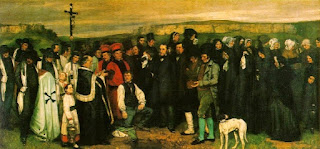IDEALISM AND REALISM
DİFFERENCES BETWEEN İDEALİSM AND REALİSM AS PHİLOSOPHY AND POLİTİCS
The concept of international relations, which is about the communication between states, has also revealed many different views. States had differences of opinion over time, they adopted their own interests. The different ideologies created by international relations, which are exactly this subject, have been adopted by the states. Different opinions in politics were very possible. At this point, the introduction of ideologies has guided the states in creating their own policies. Two of these ideologies, realism and idealism, are two currents of ideas that are widely adopted by states. In fact, although realism is an evolution of idealism, it advocates quite different views.
The concepts of good and evil, black and white have been the subject of years of debate in politics and international relations. Here, the concept of idealism defines itself as white. Idealism has always positioned itself in opposition. After all, the most important defense of idealism is that people think that they are a good being. But realism is completely against it. Realists argue that the essence of man is evil and selfish. In this case, we can call realists black. Idealism seeks the bad in the system, according to him, man is for the good. They aimed to make the world more livable. They tried to stay away from bad ideologies such as conflict and war. Perhaps because of such an understanding, they were criticized by realists as idealist/utopian (Karabulut, 2022). The ideology of idealism takes its name from the realists. Although idealism is the advanced state of idealism, it was not accepted by the realists, and it was wanted to be destroyed before it spread. This is the main purpose of naming it.The concept of idealism showed itself after the first world war. Idealism against war and conflict has been effective in creating an atmosphere of peace after the world war. Idealism, which advocates what should be rather than what is, differs from realism in this respect. Idealism does not want evil, what should be is good. The idealism that we see concretely in Winston's principles is the most peaceful end of the burning war environment. The principles are completely peaceful and different from the atmosphere of hatred during wartime. Idealism advocates exactly this. So the Winston principles are a good example to describe the ideology of idealism. Xenophon was an advocate of political idealism. According to him, the basis of idealism, laws and governments do not constitute a person's identity. He is as good as the good man in the state. For Xenophon, government comes as a result of better men (Weathers, 1954). Contrary to all these, Realism defends the interests of states. According to them, idealists think too utopian. However, governments and states are not utopian, they create conflicts of interest. While idealists pay attention to individuals and social values in these conflicts, realists look out for self-interest. In addition, idealists, who believe that these conflict environments degrade people's values and that they do not do evil willingly, argued that human beings are intrinsically benevolent beings. However, this is not the case according to realists. They argued that man could not resist the idea of power and that he had an incredible attraction to office and position. They argue that the essence of man is purely evil and self-seeking.
As a result, idealism and realism ideologies contain many similarities and differences in their content. In fact, we see the application of philosophical ideologies in politics. States have formed their policies on philosophical ideologies, based on them and implemented them. What really stands out is the different meaning that philosophical ideologies take when they enter politics, because ideologies take on completely different meanings when compared politically and philosophically. The concepts of idealism and realism are the best examples of this difference. Apart from having differences between the two ideologies, they also have different meanings in different fields.
I. REFERENCES
KÜÇÜKASLAN, A., AKTO, A., ERKILIÇ, T. A., & ULU, H. (2021). AN
EVALUATION ON THE COMPARISON OF IDEALIST AND REALIST. s. 4- 12.
Çalış, Ş., & Özlük, E. (2008, march 14). Uluslararası İlişkiler Tarihinin Yapısökümü; idealizm-realizm tartışması. s. 5-6.
Karabulut, B. (2022). Birinci Dünya Savaşı ve Uluslararası İlişkilerde İdealizmin Yükselişi. Gazi Akademik Bakış Dergisi, 2.
Mıstıler, W., & Rose, R. (2001). Political Support for Incomplete Democracies: realist vs idealist theories and measures. s. 1-18.
Weathers, W. (1954). Xenophon's Political Realism. The Classical Journal (s. 317-319). içinde The Johns Hopkins Unıversity Press.
Wright, Q. (1952, october). Realism and Idealism in İnternational Politics. World Politic, s. 116-128.



Yorumlar
Yorum Gönder